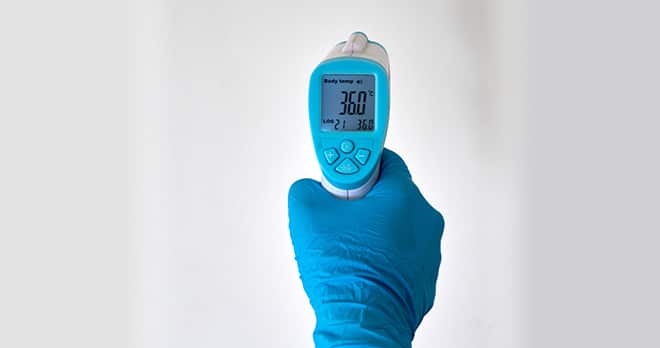Employee hot spots: can you take the temperature of your staff?

As well as staff businesses may also consider temperature checks of anyone attending the offices – such as clients, consultants or contractors. The detailed guidance issued by the Government (including in relation to customers and visitors) has not addressed temperature checks, so whether or not this is an appropriate and required measure will be for each business to decide.
The ICO has said the critical issue for possessing medical data is whether temperature checks are “necessary and proportionate”. Therefore whether you wish to test employees (or visitors), and the frequency of such testing, may depend on the type of work the employee is performing, the cost of testing, and any other steps you are taking to reduce the risk of coronavirus in the workplace.
Temperature checks for coronavirus should be treated as any other medical testing for other reasons. As such, you should check the terms of any employment contract or polices to see whether you have agreed with staff that they consent to undergo medical testing:
- If the contract and/or policies expressly permit medical testing, any refusal by staff to undergo testing could potentially be a breach of contract by them.
- If the contract and/or policies are silent on the point, there is no legal requirement for staff to take a test; and forcing them to do so would likely be unlawful (and any disciplinary action resulting from that refusal could lead to legal claims against an employer).
The simplest way around this would be to seek the employee’s consent; if possible, this should be obtained in writing.
Whether you already have consent to test or will be seeking it, businesses should explain why the tests are being conducted and how that will occur. It will be important that staff are on board with the steps you are talking to protect them and their colleagues. Consider how you will manage employees who are reluctant to provide consent (for example, by suggesting self isolation in the office or homeworking) and how employees with high temperatures will be dealt with in a fair and consistent manner.
Businesses should also ensure they comply with the data protection laws regarding the use and storage of the medical data. For example, there is probably no need to retain data relating to “normal” temperature checks and this could be destroyed immediately; for those who have returned higher readings this may need to be retained for a longer period. Similarly, ensure you are careful about who the data is shared with (for example, those who have not been in contact with an individual who has returned a higher reading likely shouldn’t have this information shared with them).